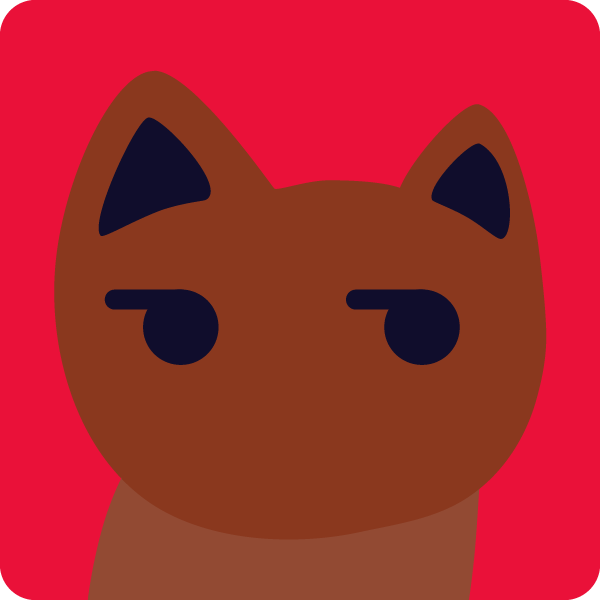For people unaware of all the role-playing game (RPG) subgenres, here’s a brief explainer:
TTRPG – Tabletop RPG. The original RPG. Played on a literal table. Dice, paper, friends, arguments. Everything else evolved from here.
Examples:
- Dungeons & Dragons
- Pathfinder
- Shadowrun
LARP / LARPG – Live Action Role-Playing Game. The version where people physically dress as their characters and act things out in person. Foam weapons, costumes, fake accents, and enough in-character drama to power three soap operas. LARPing as a concept goes back to the 1970s, right alongside early tabletop like D&D, but it didn’t get the “LARP” acronym until the 1980s.
Examples:
- Vampire: The Masquerade LARP events
- Amtgard
- Dagorhir
CRPG – Computer RPG. Born from tabletop, moved onto computers. The CPU handles all the dice rolls you don’t want to argue about.
Examples:
- Baldur’s Gate
- Fallout (1997)
- Planescape: Torment
TBRPG – Turn-Based RPG. Everyone takes turns. This is the “classic” RPG format, so people often just call it an RPG.
Examples:
- Divinity: Original Sin II
- Wasteland 3
- Trails in the Sky
SRPG / TRPG – Strategy (or Tactical) RPG. Same turn-based idea, but on grids—squares or hexes—with multiple units to command.
Examples:
- Fire Emblem
- Final Fantasy Tactics
- Tactics Ogre
RTwPRPG – Real-Time with Pause RPG. You pause to assign orders, unpause to watch them happen. Baldur’s Gate fans still swear by this.
Examples:
- Baldur’s Gate II
- Pillars of Eternity
- Dragon Age: Origins
ARPG – Action RPG. Real-time combat. No turns, no waiting—just swing when you feel like it.
Examples:
- Diablo II
- Dark Souls
- Kingdom Hearts
IRPG – Idle RPG. The game mostly plays itself. Perfect for people who like progression bars but don’t like playing.
Examples:
- Clicker Heroes
- Idle Champions of the Forgotten Realms
- AFK Arena
DBRPG – Deck-Building RPG. RPG progression tied to card decks. You level up by upgrading your deck rather than just your stats.
Examples:
- Slay the Spire
- Monster Train
- Griftlands
SurRPG – Survival RPG. Harsh environments, resource scarcity, and RPG progression systems. The game’s main plot is “don’t die.”
Examples:
- Outward
- Kenshi
- The Long Dark
RLRPG – Rogue-like RPG. Procedural generation, permadeath, and heavy RNG baked into an RPG framework.
Examples:
- Darkest Dungeon
- Stoneshard
- Tangledeep
SLRPG – Souls-like RPG. RPGs built around Soulsborne-style combat: stamina-based melee, brutal bosses, minimalist storytelling.
Examples:
- Dark Souls III
- The Surge 2
- Lords of the Fallen
JRPG – Japanese RPG. Made in Japan or heavily inspired by Japan’s approach. Console-heavy. Drama-heavy. Usually turn-based or action hybrid.
Examples:
- Final Fantasy VII
- Persona 5
- Dragon Quest XI
KRPG – Korean RPG. Similar to JRPGs but usually more PC-oriented. Often online.
Examples:
- Lost Ark
- MapleStory
- Vindictus
WRPG – Western RPG. Pretty much any RPG from the West that isn’t imitating JRPGs.
Examples:
- The Elder Scrolls V: Skyrim
- Mass Effect
- Fallout: New Vegas
PRPG – Polish RPG. Technically a WRPG branch, but with its own personality. Darker tone, folkloric influences, and PC-first mentality.
Examples:
- The Witcher series
- Seven: The Days Long Gone
- The Thaumaturge
GRPG – German RPG. RPGs developed in Germany, usually open-world Eurojank epics with handcrafted maps, tough early-game difficulty, and an earnest-but-campy tone.
Examples:
- Gothic II
- Risen
- ELEX
LatRPG – Latin American RPG. RPGs from Latin America, often mixing local folklore, indigenous mythology, and JRPG/ARPG elements. “LARPG” isn’t used because Live Action Role-Playing already took it.
Examples:
- Mulaka
- Tunche
- Cris Tales
MORPG – Multiplayer Online RPG. Small-scale online RPGs, often instanced or lobby-based.
Examples:
- Phantasy Star Online 2
- Monster Hunter: World,
- Dauntless
MMORPG – Massively Multiplayer Online RPG. Persistent worlds, thousands of players, endless grinds.
Examples:
- World of Warcraft
- Final Fantasy XIV
- Guild Wars 2
MOORPG – Massive Online Open-World RPG. Marketing term for the “bigger” MMOs. You’ve seen the ads.
Examples:
- Black Desert Online
- ArcheAge
- EVE Online
MRPG – Mobile RPG. Made for phones. Often gacha-heavy, session-based, or both.
Examples:
- Honkai: Star Rail
- Raid: Shadow Legends
- Summoners War
BRPG – Browser RPG. Runs in your web browser. Lightweight, accessible, usually free-to-play.
Examples:
- Kingdom of Loathing
- AdventureQuest Worlds
- Urban Dead
VRRPG – Virtual Reality RPG. Built for VR platforms. Often more about immersion than traditional RPG mechanics.
Examples:
- Zenith: The Last City
- OrbusVR
- The Mage’s Tale
BBRPG – Bulletin Board RPG. Forum- or post-based roleplay. Writing-heavy, rules-light.
Examples:
- Gaia Online RP forums
- NationStates roleplay boards
- Myth-Weavers
So yeah, there’s a lot of alphabet in the RPG soup. Some of it’s legit, some of it’s marketing garbage, and some of it’s just fans inventing labels because that’s what fans do.
But they’re all chasing the same dopamine hit: numbers go up, loot gets shinier, and suddenly your “quick session” has eaten the entire weekend.
MUDs, I think, have a place on this list.
Everybody’s talkin’ 'bout the new massively open-world online multiplayer virtual mobile browser bulletin board tabletop Japanese Western Polish Latin American Korean idle action real-time turn-based strategic role playing game, funny, but it’s still RPG to me 🎶
Quick correction, even though the A in ARPG stands for action, action RPGs and ARPGs are not the same genre and you cant (well you can, but you shouldnt bc then youre purposefully being obtuse) just abbreviate it. I dont really like this list for other reasons, but I can see that you did put some effort into it so I dont want to be super critical.
what’s the difference between an Action RPG and an ARPG to you?
One’s assassin’s Creed/horizon zero dawn/god of war, etc. The other is path of exile, diablo, torchlight, grim dawn etc.
The ARPGs you’re probably referring to, I call them Diablo-likes to distinguish them from all the other action RPGs.
That term was coined way too late, it’s exilelike now.
I still remember someone saying that Diablo was a beat-em up, not a RPG 😁. We probably didn’t know the term “hack’n’slash”, but still makes me chuckle.
Terms can definitely be confusing. Diablo is definitely a hack-n’-slash, but it’s very different from the likes of Golden Axe and God of War.
Where Warframe would fit in this? It’s kinda a MMO (but not a MMO) with a lot of stat based progression.
ARPG + MORPG hybrid with looter shooter characteristics.
It doesn’t really fit anywhere cleanly, though.
Nice. Didn’t know thag PRPGs are a thing. I take it that Gothic would qualify although it is German?
What about dungeon crawlers, like Ultima, Lands of Lore or Might & Magic? To me they seem to be very distinct from isometric CRPGs.
There’s a lot of subgenres I wanted to include, but I felt this document was already too long. Here’s more of them:
- DBRPG = Deck-building RPG
- SurRPG = Survival RPG
- RLRPG = Rogue-like RPG
- SLRPG = Souls-like RPG
I don’t know why I overlooked GRPGs since Germany has some pretty important ones. You mentioned Gothic, but there’s also both the Sacred series and ELEX series.
I’d say that while both GRPGs and PRPGs are releated to each other, there’s some big differences that go beyond nationality. I’d say GRPGs are more like a muddy Renaissance faire going on while PRPGs have more of a storybook style.
EDIT: In the interest of thoroughness, I added even more subgenre acronyms.
Great write up! There were a small number of items in the descriptions that I didn’t know what they were, for example RNG and Eurojank
RNG = random number generator. In gaming, this just means random chance. Whenever loot drops, critical hits land, enemies spawn, or dice rolls decide outcomes, that’s RNG at work.
Eurojank is a term for European-developed games (usually from Central or Eastern Europe) that are ambitious, creative, and full of unique ideas… but also full of technical rough edges.
Guild Wars 1 made its own little style called CORPG.
A competitive online role-playing game (CORPG) differs from the standard massively multiplayer online role-playing game (MMORPG) in that they are less focused on the massive group experience. All outside areas are instanced, meaning that a player and his group are the only ones there, so that every player gets his or her own unique version of the game’s story without the headache of killstealers or people disrupting the fun.
In Guild Wars, as opposed to one of NCSoft’s other offerings, like City of Heroes, a player might roam the countryside with a group of 1 to 11 other heroes. In an MMORPG like City of Heroes, the group would be surrounded by other similar groups, all wishing to kill the same mobs and achieve the same goals, at the same time, in the same space. Guild Wars eliminates this scramble, letting players take the game at their own pace while playing player versus environment.
The competitive aspect of the name derives from the player versus player, guild versus guild, and an international war called the War of Worlds. In many respects, the PvP version of the game is a very different experience from PvE, using different strategies and playing styles to battle human opponents instead of the computer AI. https://guildwars.fandom.com/wiki/Competitive_online_role-playing_game
What do you refer to the eg Mario & Luigi games as? Where they’re turn based but rely on timed button presses and minigames for combat 🤔
I guess Undertale also falls into that category.
Mario & Luigi games are still JRPGs, which is a genre that’s more of a vibe than something easily defined. Here it’s a little easier because the series traces back to a major JRPG developer in the 1990s.
Even Expedition 33, another one with timed gameplay, is frequently getting lumped into the category (though that might change in coming years). That’s why I prefer the term Japanese-style role-playing games, as the genre is increasingly seeing game dev outside of Japan.
Some VRMMORPG examples are Sword Art Online or Shangri-La Frontier!
Idle RPGs makes me curious. What’s the best one, SP first, without MTX?
Itrtg and ngu idle are great examples of the genre. I think they both have mtx but you don’t need to spend any money to progress. These games also last literally years to get to the end game! Very fun imo












